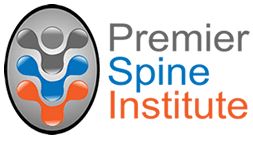Lower back pain is a common complaint among American adults, making it difficult to maintain a job or perform everyday activities without great discomfort.
Often, sciatica and its characteristic lower back and leg pain, is the culprit. Caused by nerve irritation, nerve compression, or nerve injury, sciatica pain may feel sharp and stabbing, or present as tingling, numbness, or burning. It often feels worse when you stand, sit, cough, or sneeze.
Dr. Bonaventure Ngu, our expert at Premier Spine Institute, diagnoses and treats sciatica using advanced technology and evidenced-based treatments. His advice for patients hoping to prevent sciatica is to know and avoid what puts you at risk for this painful condition.
1. Obesity
Excess weight puts extra pressure on the spine, compressing the sciatic nerve. Even athletes, such as weight lifters, can experience nerve compression if they’re on the heavier side, as muscle, like extra fat, can compress the spine. Losing excess weight can help you avoid sciatica.
2. Poor back posture
The way you stand, sit, and walk can affect the path of the sciatic nerve from your lower back to your legs. When your spine is out of alignment, your back muscles work harder to compensate for the imbalance, which can cause fatigue and nerve irritation.
An exaggerated curve in your lower back, hunched shoulders, a flat back, or a tipped pelvis (often called swayback) can all cause tension in your back and leg muscles, which can easily pinch your sciatic nerve. Talk to Dr. Ngu about your posture and gait to find out if it’s putting you at risk for sciatica.
3. Physically demanding work
Physical activity is great for your back, but repetitive motions that involve lifting heavy objects daily can put too much pressure on your spine and irritate the sciatic nerve. Taking more breaks and maintaining a straight back while lifting objects may help you avoid sciatica.
4. Smoking
Smokers are more likely to experience sciatica because nicotine impairs blood circulation. With less blood flow, if a nerve injury occurs, the healing process is slower and the inflammation may linger longer. In the rare case that you may need surgery to correct the problem causing your sciatica, smoking also makes your healing and rehab longer and more difficult.
5. Diabetes
Much like smoking, chronic high blood sugar levels impair blood flow and healing. In addition to slower healing, elevated blood sugar levels can also lead to diabetic neuropathy, a type of nerve damage that affects diabetics.
Keeping a food diary and monitoring how your blood sugar levels respond to different types of foods may help you manage diabetes and avoid sciatica symptoms.
Get relief for sciatica with us
Sciatica pain can be debilitating. Fortunately, there are effective treatment options.
Depending on the cause of your sciatica and how much pain you’re experiencing, Dr. Ngu may recommend painkillers or antidepressants to block out the pain. Epidural injections that reduce inflammation near the nerve are also an option.
Physical therapy is a reliable way to relieve sciatic pain because it strengthens the supporting muscles and prevents pressure from pinching the sensitive nerve.
Contact us to schedule an appointment and get quick relief from your symptoms.
